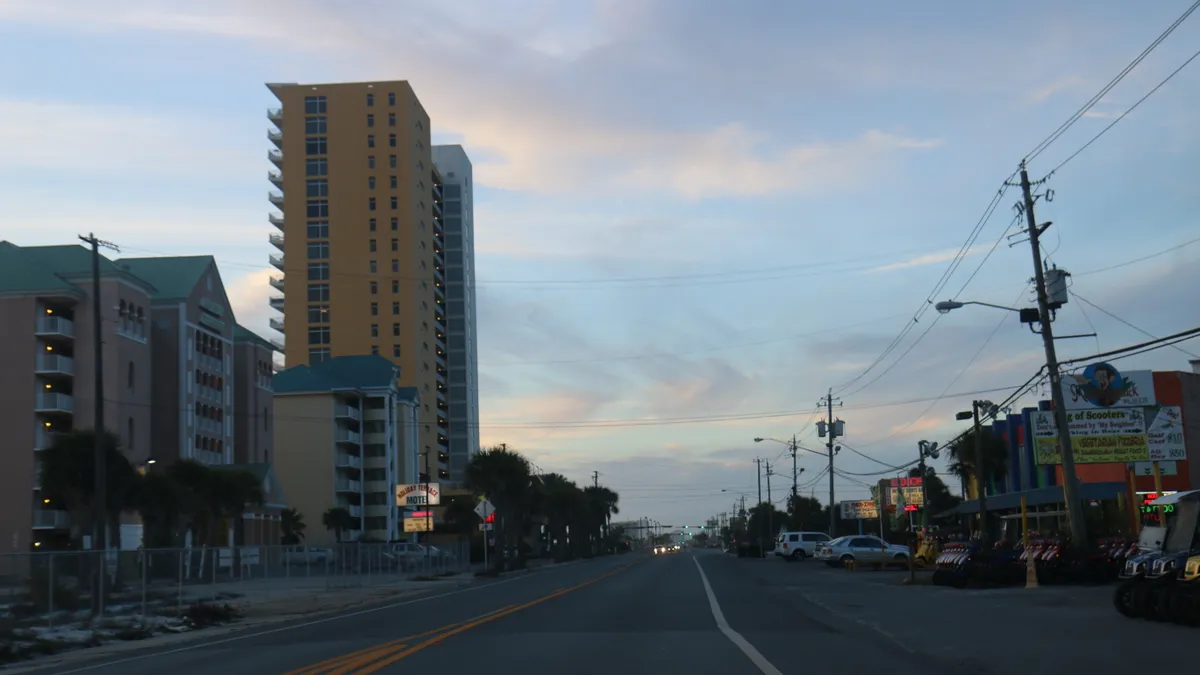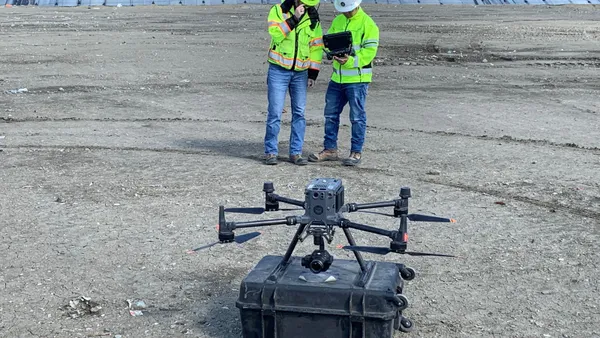Dive Brief:
- The Bay County Waste-to-Energy Facility operated by Engen in Panama City, Florida, will shut down in 2021 following a recent vote by county commissioners to wind down operations. Costs associated with maintaining the facility have steadily mounted for years and officials said the decision would bring down tipping fees from more than $50 per ton to closer to $35.
- Waste currently handled by the facility will shift to the county-owned and operated Steelfield Road Landfill. WJHG reported the incinerator has previously been used as an alternative to recycling, and commissioners said once the solid waste revenue stream breaks even they may be able to consider more recycling options. Bay County's former conventional recycling program shuttered after Hurricane Michael in 2018.
- Don Murray, general services director for Bay County, said the costs associated with the facility were compounded by its age and constraints around capacity, which restricts its ability to expand to more customers. "We can't grow," he said, adding the facility has been operating for nearly 40 years and natural gas is a cheaper alternative to generating energy from waste combustion.
Dive Insight:
The Bay County facility closure fits into a wider trend of older incinerators shuttering in recent years, while new sites take longer to appear. According to a 2019 report by the Energy Recovery Council (ERC), an industry trade organization, the Bay County site is one of 11 such facilities in Florida out of just over 70 nationwide. The facility has a capacity of 500 tons per day, less than half the amount processed by most other mass burn or refuse-derived fuel facilities in the state.
ERC did not respond to a request for comment regarding the planned closure and how it fits into broader trends for the sector. But costs have been a long-running problem for the Bay County facility, which opened in 1986. Murray said operating and maintaining the site costs around $4.5 million annually and has posed increasing financial problems for the county.
The Panama City News Herald reported that commissioners cited ongoing cost issues as their leading justification for the decision. They also underscored no animosity toward Engen, which has been operating the incinerator since 2007, saying this was a business decision more than anything else. Murray said continuing to operate would raise costs by around $23 per ton, even though the area's tip fees are already "over the industry standard." Engen did not respond to requests for comment.
The Steelfield Road Landfill originally served as an ash disposal site for the incinerator and will now take on the area's waste. Murray said capacity at the site is not a concern.
The Global Alliance for Incinerator Alternatives (GAIA) said the Bay County decision reflects broader trends.
"These are dinosaur facilities. They're old, a lot of them are reaching 30 years of operation," said GAIA's Failing Incinerators Project Coordinator Vivian Breckenridge, who focuses on the United States and Canada. "They require a lot of maintenance in order to keep going and meet air quality standards and regulations... if an incinerator has financial difficulty, it's just not profitable."
Breckenridge said issues around climate change and the proximity of industrial facilities to water should prompt more community scrutiny of waste systems in hurricane-prone Florida. For example, Hurricane Michael temporarily took the incinerator offline when it hit in 2018, forcing the county to authorize emergency repairs. At the same time, Florida's low-lying topography is one reason why it has more waste-to-energy facilities than any other state, as landfill siting can be a challenge.
But Breckenridge also expressed concern about the county's move to redirect its waste to a landfill, calling the scenario a "false solution" that poses additional environmental challenges.
"It's a good thing that this facility shut down," she added. "But it's also a little bit concerning that the plan seems to be to send all the waste to a landfill instead."
Despite Bay County's decision, mass burn technologies remain an area of interest in other parts of Florida. In late April, Pasco County voted to move forward with negotiations to design and construct an expansion for its own incinerator, currently operated by Covanta. In earnings calls, Covanta has also talked about "active discussions with multiple client communities" in the United States regarding both new and replacement capacity, even as the company has hedged around the future of wider-scale expansion as compared to other countries that have more facilities under construction.










